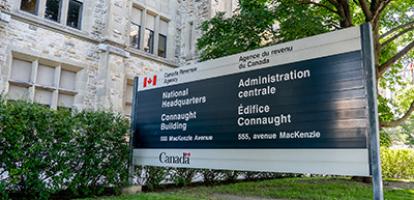From: Grant Bishop
To: François-Philippe Champagne, Minister of Innovation, Science and Industry of Canada, cc: Matthew Boswell, Commissioner of Competition; Arif Virani, Minister of Justice and Attorney General of Canada; provincial attorneys general
Date: September 20, 2024
Re: We need repeal, or a provincial challenge, to hasty and overbroad new Competition Act greenwashing rule
Since the blowback to the hastily inserted “greenwashing” amendment to the Competition Act, various academics and advocates have written in support of this legislation.
Their arguments fail to address the core concerns with the vagueness and overbreadth of the new provision, which clearly infringes our Charter-protected freedom of expression.
The widespread industry concern is specifically around the new prong – the new section 74.01(1)(b.2). This requires “substantiation in accordance with internationally recognized methodology” for any representation that a business activity benefits the environment or mitigates climate change.
As a restriction on speech, the new provision obviously infringes on the Charter’s freedom of expression. The determinative question for the provision’s constitutionality will be whether this is reasonably justified under the Oakes analysis for Section 1 of the Charter.
Earlier cases have considered – and found justified – other misleading advertising provisions of the Competition Act, including those for ordinary price representations and the “adequate and proper test” requirement for performance-based claims.
However, unlike these existing provisions, the new greenwashing provision is vague and overbroad, which should mean it fails to meet the Oakes test for infringing Charter-protected rights.
The new provision is vague because the term “internationally recognized methodology” is not otherwise defined in the Competition Act. The new provision lacks any accompanying factors that might provide an intelligible standard for a court to determine whether a given “methodology” is “internationally recognized.”
The new provision is overbroad because innovation outpaces bureaucracy. That is, new scientific discoveries will occur before methodologies can be drafted and achieve “international recognition.” But the new provision restrains a business from telling the public about such innovation until some international consensus catches up.
The core issue is that requiring an “internationally recognized methodology” is not about the truth of a representation. It’s about whether a claim is acceptable to some official or semi-official third-party.
To underscore this point, consider the Act’s existing requirement for “an adequate and proper test” for a claim about the performance of a product. Yes, this also imposes a reverse onus in order to prevent uncertain claims from entering the marketplace. A business meets the requirement by conducting its own test that objectively validates the truth of its claim.
In contrast, for the new “internationally recognized methodology” requirement, a business may have scientific evidence to substantiate its claim but because its technology is new and novel, there is no “internationally recognized methodology.” Prohibiting discussion of innovation undermines the public interest in learning about new advances.
As an example of the provision’s overreach, consider an August New York Times article on solar geoengineering that profiled pioneering climate scientist David Keith’s efforts to advance this technology. There is no mention of any “internationally recognized methodology” to support Keith’s claims about solar geoengineering’s ability to mitigate climate change, and methodologies for studying the impacts of the technology are in “nascent states.”
This is no indictment of David Keith (whom I personally regard as an inspiration). This simply underscores the unconstitutional overbreadth of the new provision.
Under the Competition Act, the definition of a business also “includes the raising of funds for charitable or other non-profit purposes” – such as, for example, a university-based institute. Should a research leader like Keith be prohibited from telling the public about scientific proof for a new technology until some international organization has blessed his finding?
Indeed, this new provision ironically inhibits the competition that the Competition Act aims to promote. Existing methodologies will inherently concern the technologies that are already on the market. This statutory requirement to await drafting and international recognition of methodologies will stymie disruptive new entrants from gaining a beachhead in the marketplace. One could also conceive that industry incumbents might slow international recognition of methodologies to hinder competitors.
Notably, the Competition Bureau is now laudably undertaking an expedited consultation about how it should enforce the new provision. However, third parties can now also initiate challenges to conduct under this new provision and any enforcement guidance from the Bureau cannot cure the provision’s Charter infringement.
As scholars David Schneiderman and Kent Roach have observed, the problem of overbroad speech laws “is that legitimate and important, even truthful, expression which democratic societies would be loath to prohibit will be chilled into silence.”
If Parliament does not repeal this poorly-tailored “greenwashing” provision, concerned provinces should urgently challenge its constitutionality. Unlike private parties, provincial governments can refer such constitutional questions directly to their courts of appeal.
To ensure a vibrant marketplace of ideas, our constitution must protect the public’s ability to learn about new technological advances – especially for the existential challenge of climate change.
Grant Bishop is the Calgary-based founder of KnightFork, which builds data-driven tools for carbon pricing and the energy transition.
To send a comment or leave feedback, email us at blog@cdhowe.org.
The views expressed here are those of the author. The C.D. Howe Institute does not take corporate positions on policy matters.





